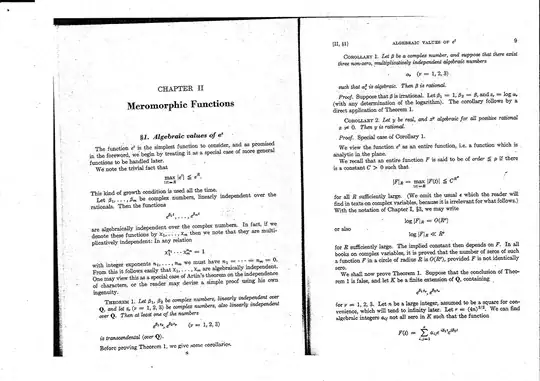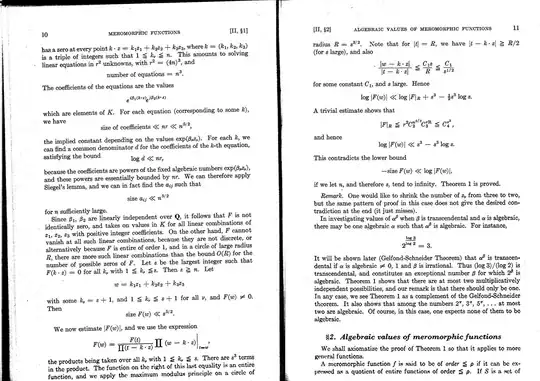Theorem of Siegel that for real $\lambda$ and distinct primes $p,q,r,$ the numbers $$ p^\lambda, \; q^\lambda, \; r^\lambda, $$
cannot all be rational unless $\lambda$ is an integer.
See page 455 in Alaoglu and Erdos, On Highly Composite and Similar Numbers (1944), also chapter 2 of Introduction to Transcendental Numbers by S. Lang.
I see there is also a book Transcendental Numbers by our hero, C.L. Siegel, that could easily give the first polished discussion of the result, which is just what we call a "personal communication" in the Alaoglu Erdos article.
I do not have the Lang book from the library yet. Apparently this covers the same material, and is certainly from the same time: LANG PDF
From the book, now clear how it relates, see Corollary 1, with the definition of multiplicatively independent middle of page 8 :


This (Theorem 1, I guess) is this : http://en.wikipedia.org/wiki/Six_exponentials_theorem

